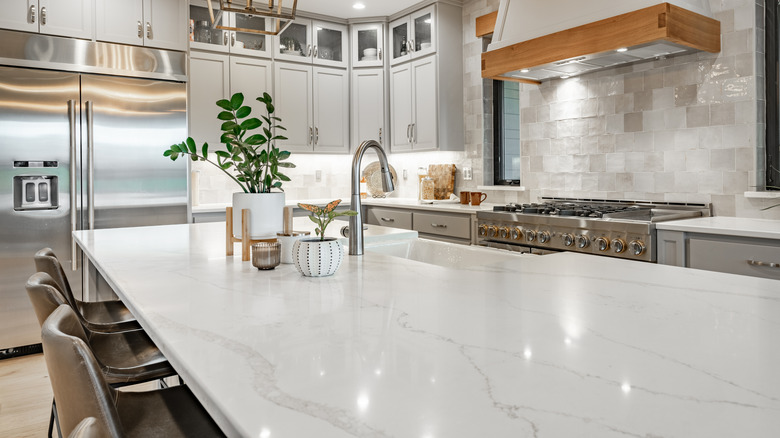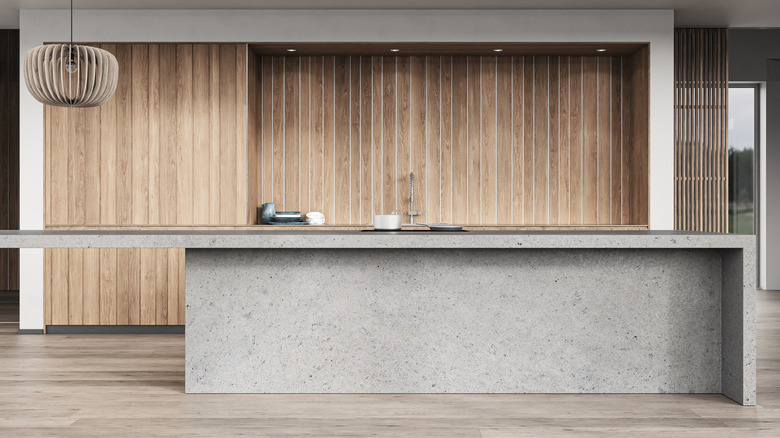How Heat-Resistant Are Quartz Countertops? What To Know When Designing Your Kitchen
If you're remodeling your kitchen, there are plenty of mistakes you want to avoid (like buying a big appliance without measuring). But another mistake to steer clear of is choosing the wrong countertops for your needs. For example, quartz has been rising in popularity recently, but it doesn't withstand heat as well as some other options. Rather than choosing it just to follow trends, it's a better idea to consider the functionality of your kitchen — or how to make quartz work if you really love it.
"Quartz is incredibly durable in terms of scratching and staining, but when it comes to direct heat, it's not invincible," said Thomas Borcherding, professional kitchen designer and owner of Homestar Design Remodel. He explained this is mainly because quartz is an engineered material that uses resin in its creation. Unlike natural stones, which are generally good at withstanding heat, the resins in quartz can discolor or crack (or both!) when exposed to high temperatures, which are generally anything over 150 degrees Fahrenheit. "That means setting a hot pan directly from the stove or oven onto a quartz countertop is not a good idea," Borcherding said.
But don't worry. If you really want to use quartz, you just need to take some extra precautions to ensure it isn't exposed to high heat. "You should always use trivets or heat pads when placing a hot pan or pot onto a quartz countertop," Borcherding noted.
What countertop materials are better for heat?
When choosing the right countertops for your needs, Thomas Borcherding suggested one well-known material that does well with heat: granite. "That said ... I still recommend some caution as extreme temperature changes (like a red-hot pot on a cold surface) can cause stress cracks over time," Borcherding warned. "But overall, granite is about as forgiving as it gets for heat." If you're choosing between quartz and granite for your kitchen, it's also important to note that granite is often more affordable than quartz, though it requires more upkeep. Additionally, since granite is all-natural, you won't know the exact pattern you're getting until it arrives, whereas quartz is mass-produced, and the pattern is always the same.
If you're looking for the absolute most heat-resistant countertop material, Borcherding also mentioned concrete as a top choice "that can be customized in color and texture." It's ideal for people who need something durable but perhaps not as naturally patterned as granite.


